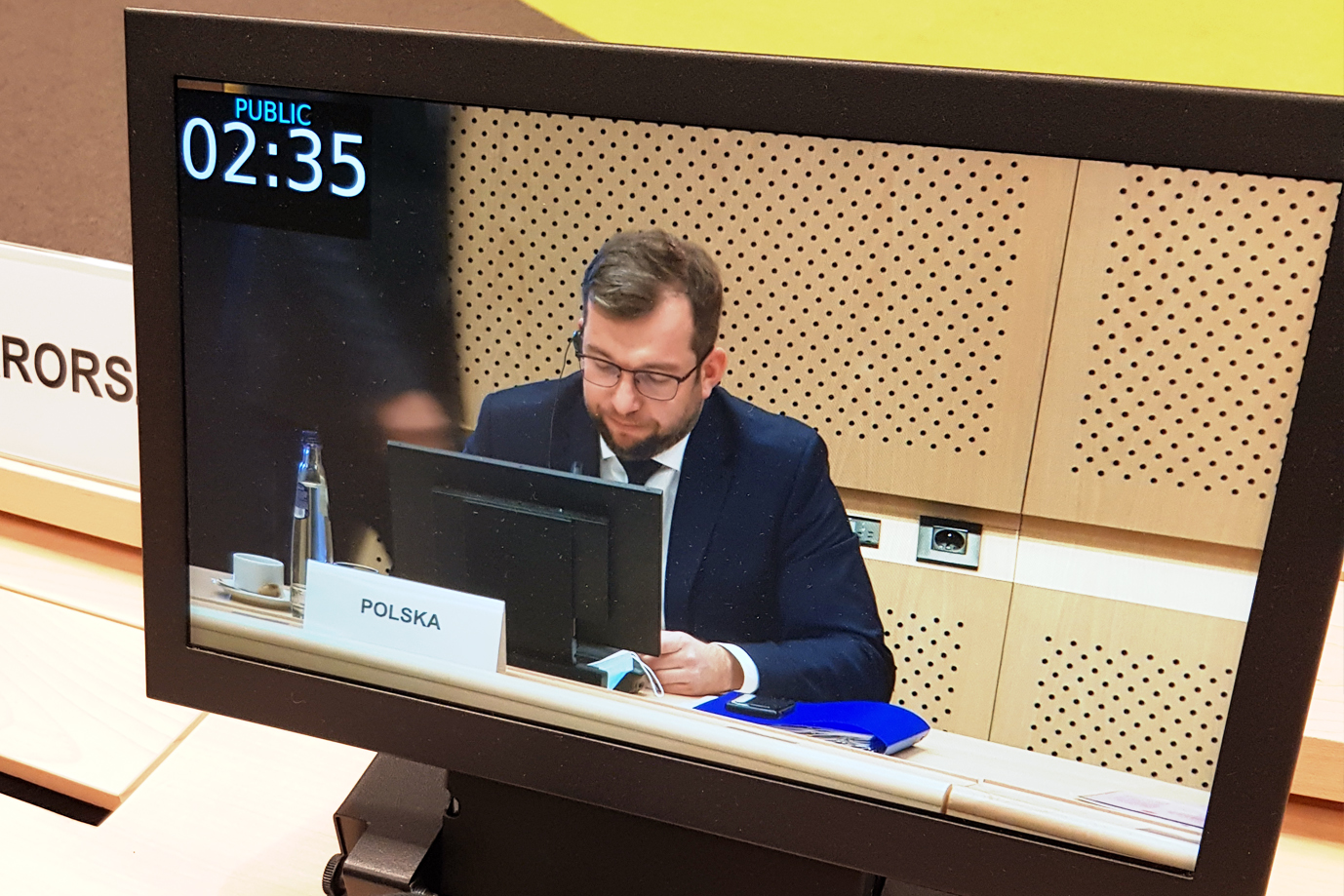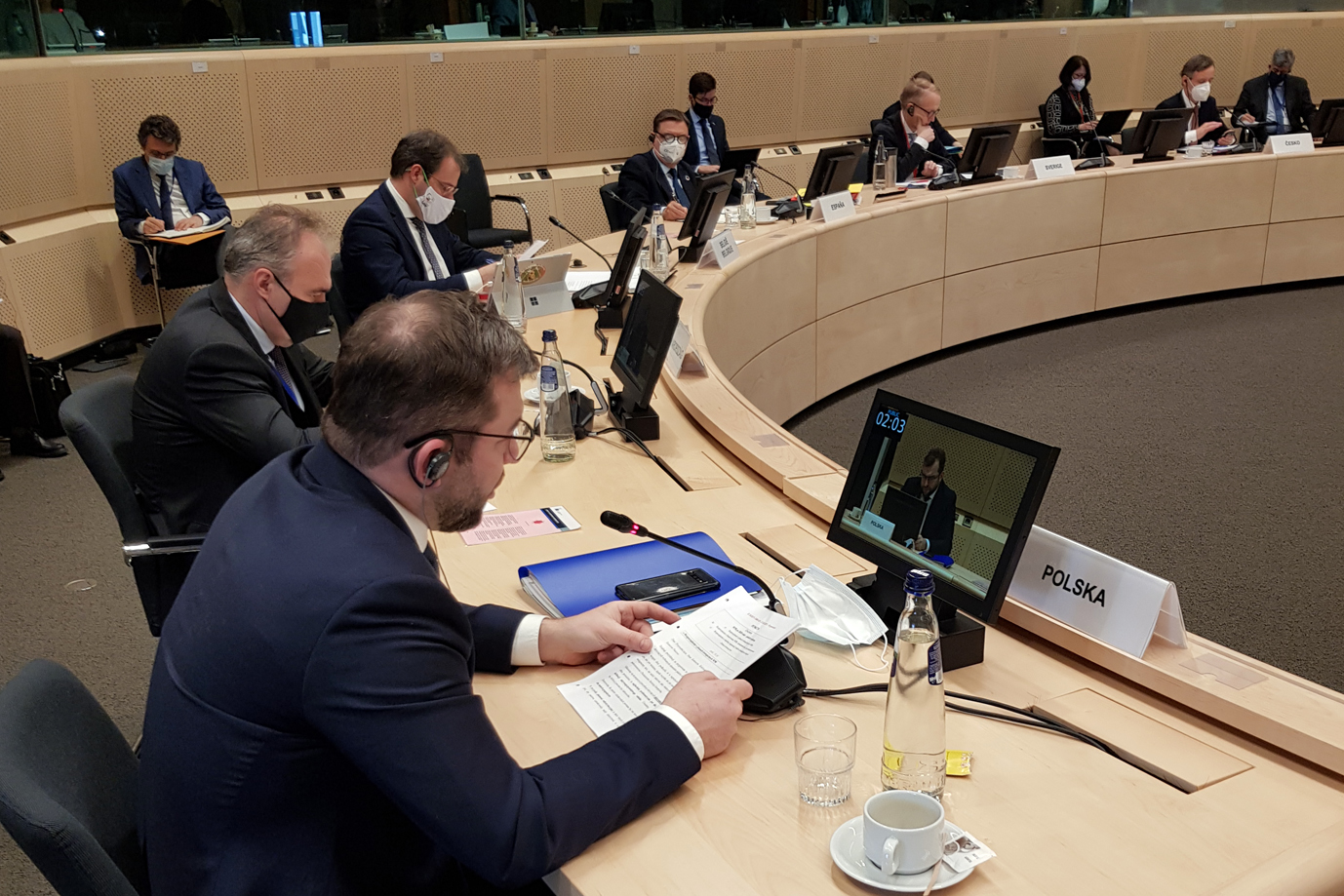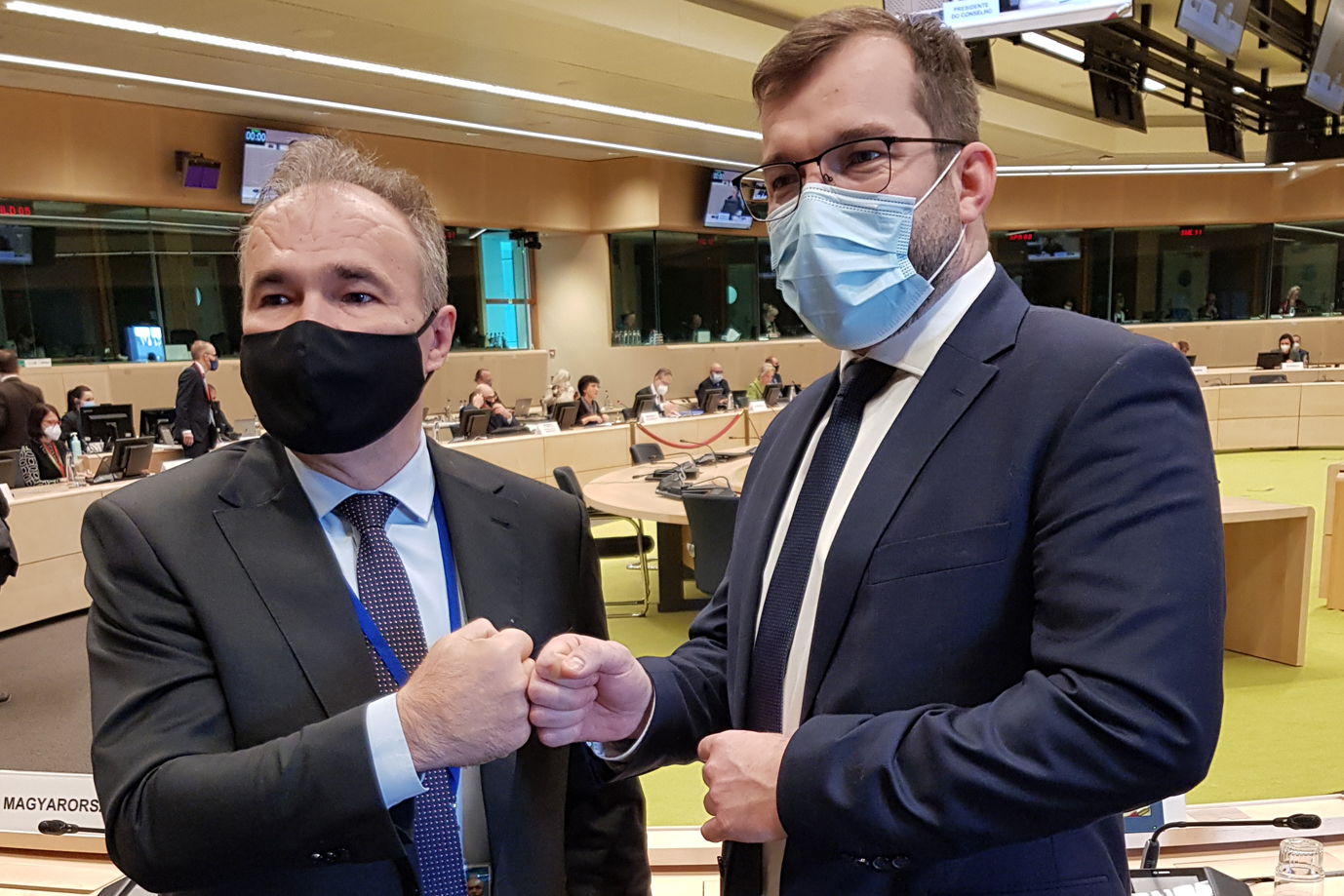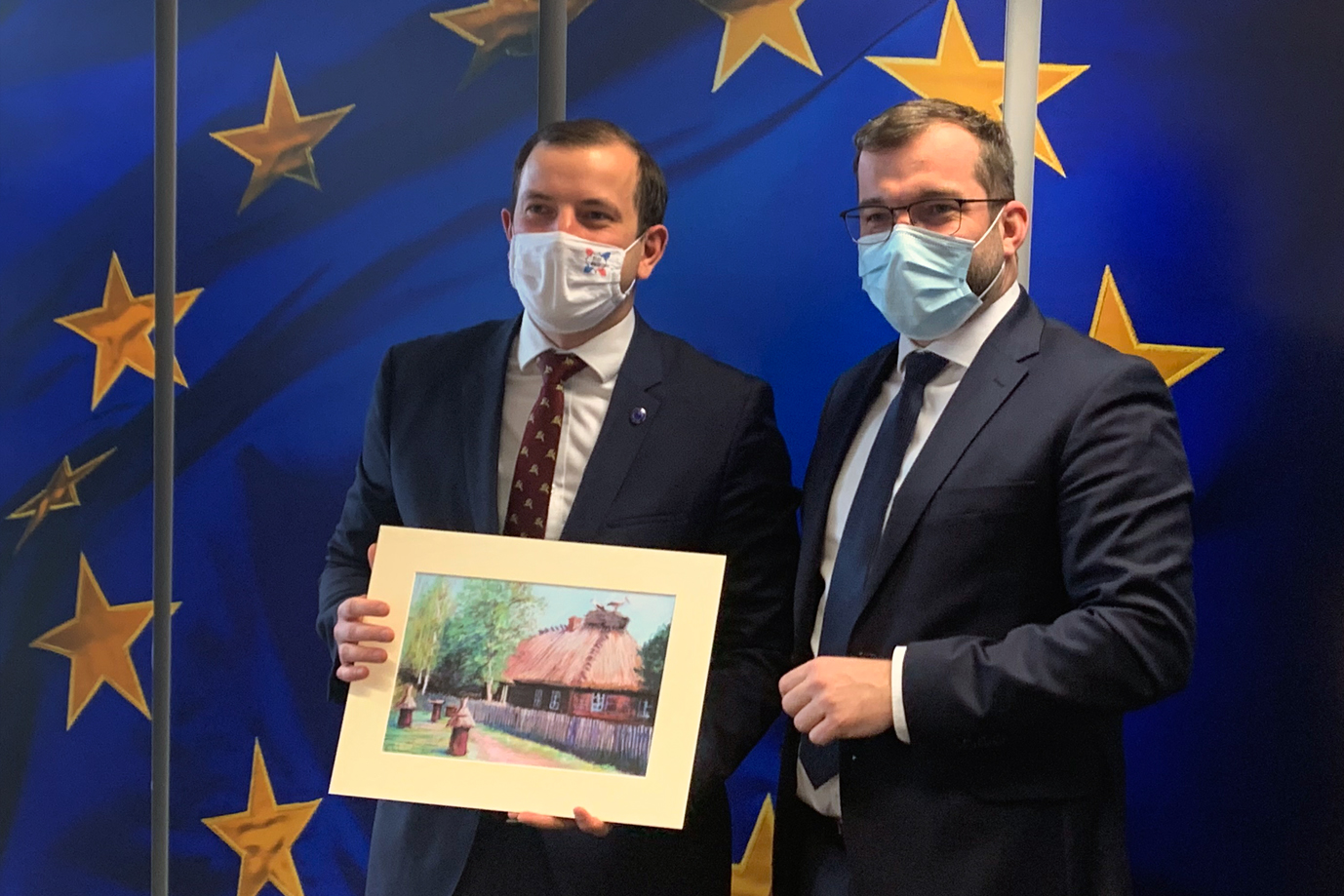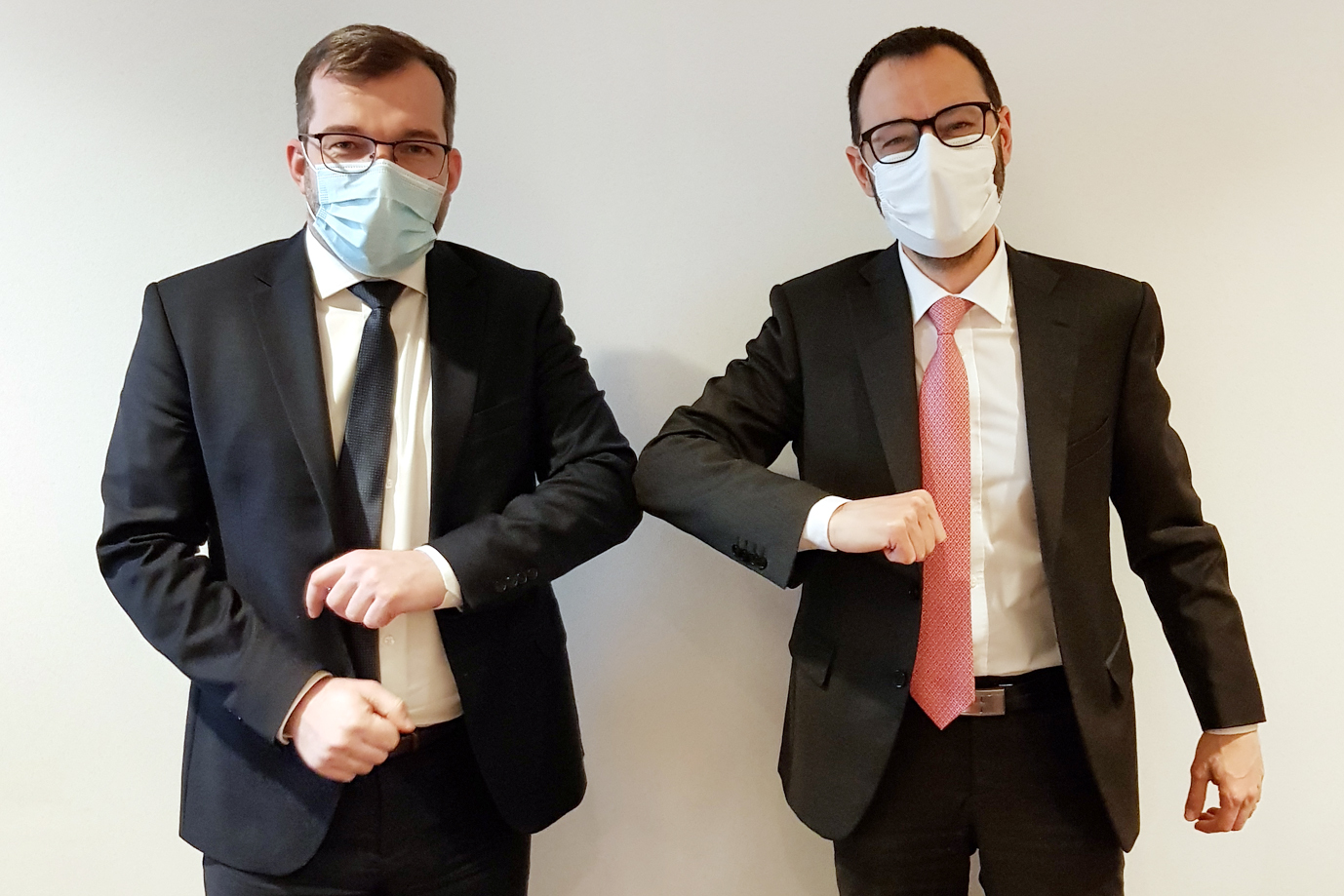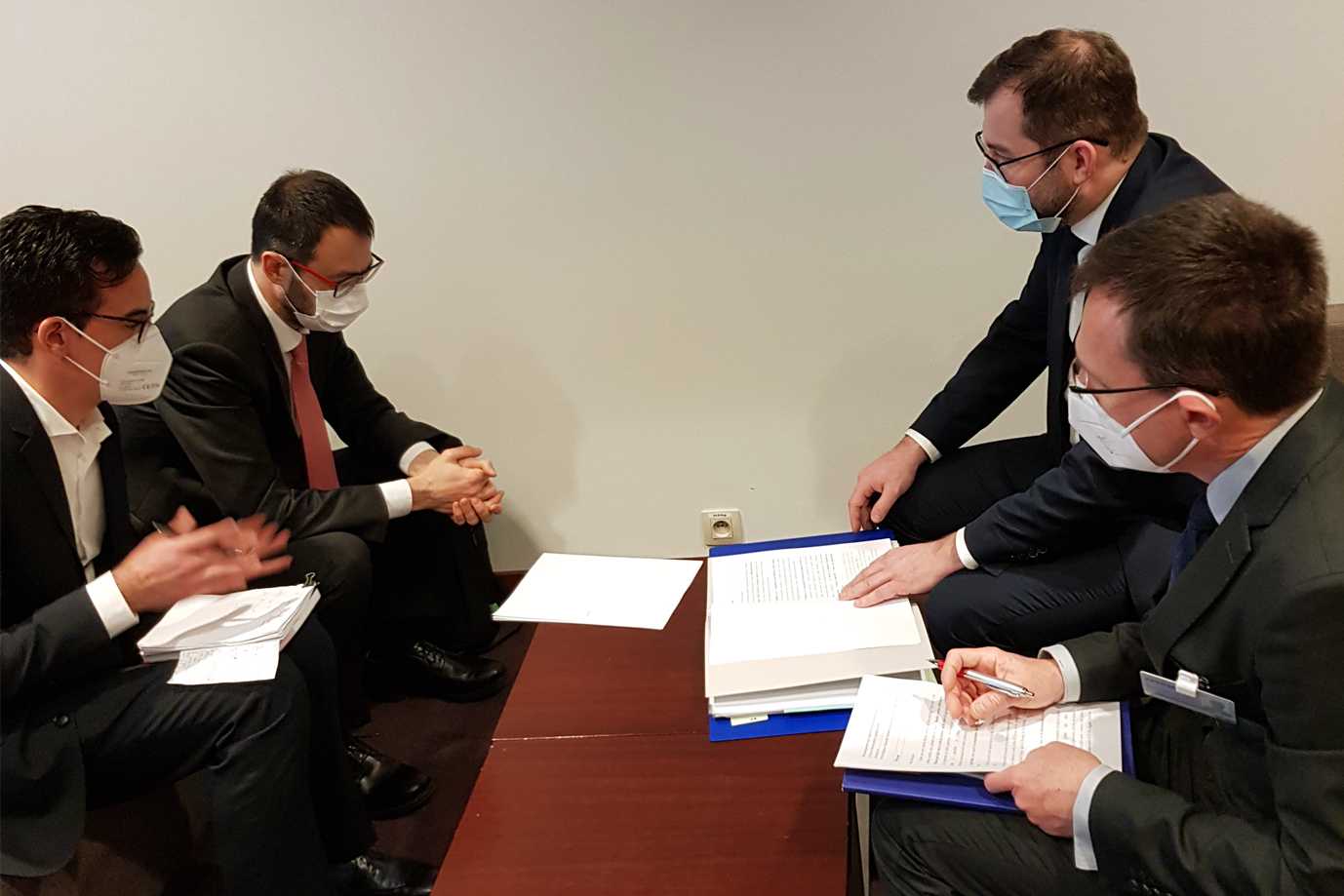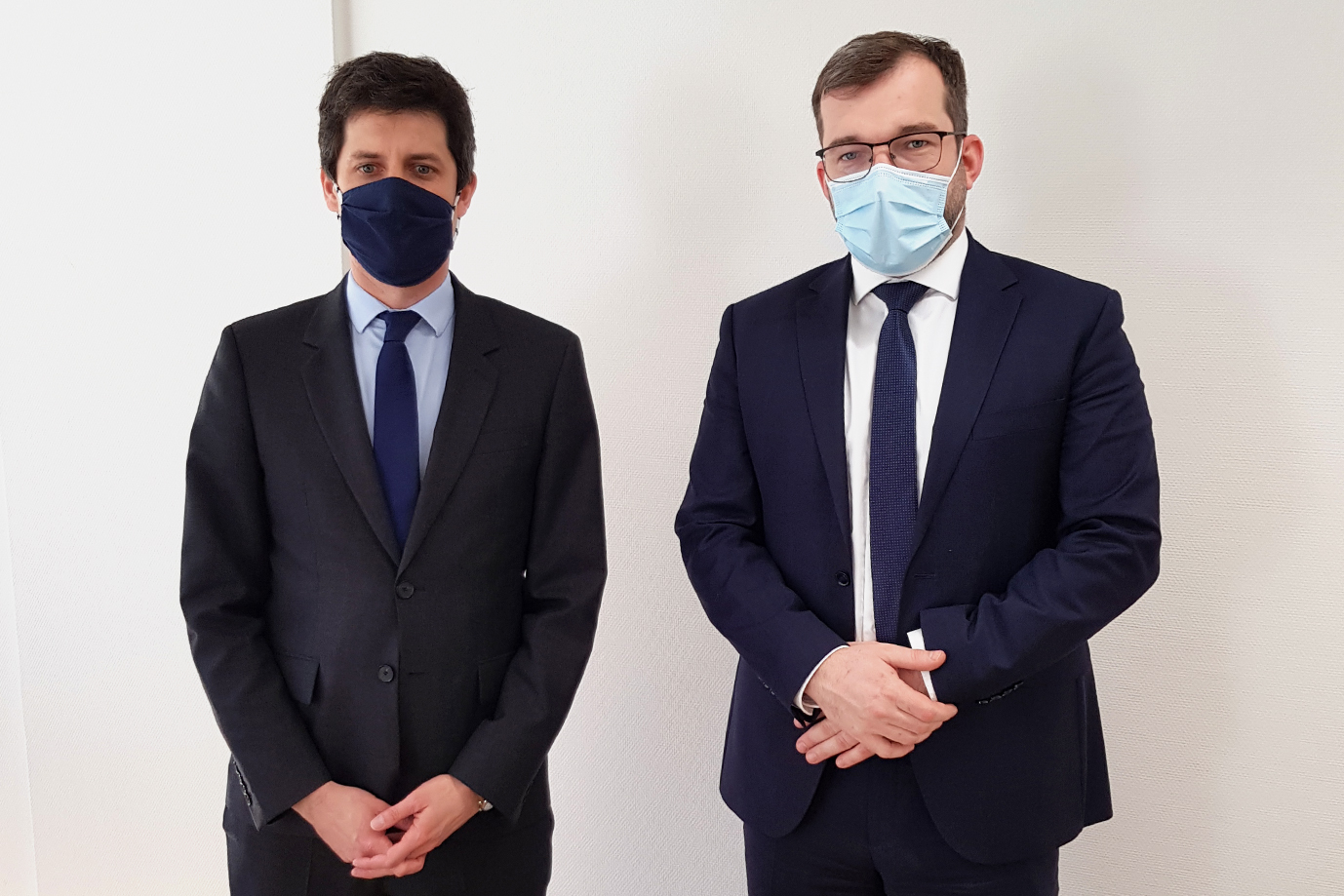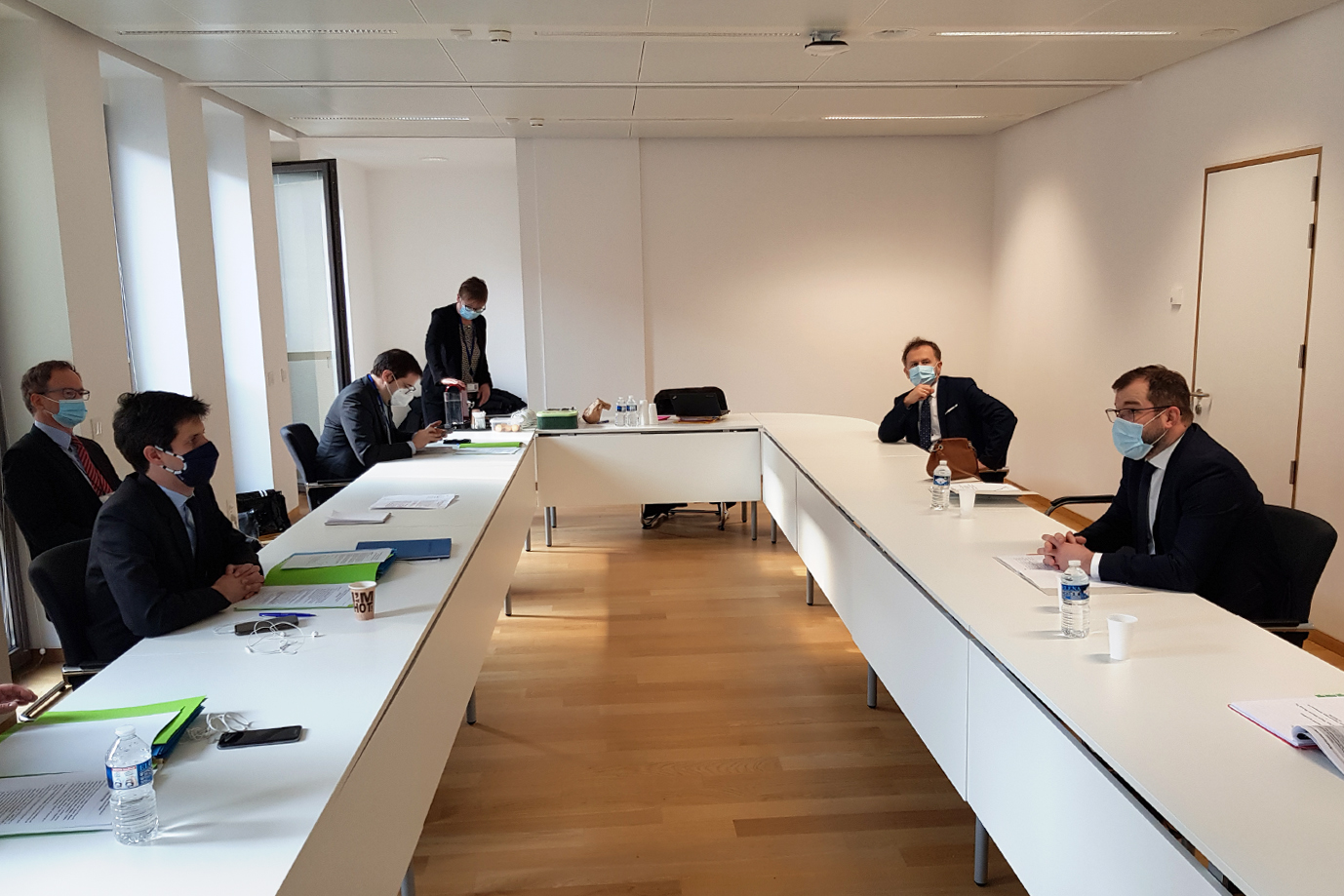Polish voice at AGRIFISH in Brussels
24.03.2021
Minister for Agriculture and Rural Development Grzegorz Puda participated in a meeting of the Agriculture and Fisheries Council (AGRIFISH), which was held on 22–23 March 2021 in Brussels.

AGRICULTURE
The agenda mostly included questions related to the post-2020 CAP reform.
The discussions of EU ministers for agriculture mainly touched upon topics like the preparation of the CAP national strategic plans and the so-called new delivery model. The ongoing negotiations with the European Parliament on the shape of the CAP reform require the Council to make some compromises as regards the previous arrangements between Member States.
– In the ongoing negotiations with the Parliament, we will not support those proposals from the Parliament which will hamper the preparation and implementation of the CAP strategic plans and add to the burden on farmers and national administrations – Minister Grzegorz Puda said.
For the purposes of the Council meeting, France drew up a document supported by several countries, including Poland, which highlighted the need to simplify the common agricultural policy.
– We appreciate Commission recommendations on the preparation of national strategic plans. We treat them as guidelines, not an obligation. Those recommendations will help set the direction of changes that will support interventions provided for in strategic plans. However, they may not prejudge the objectives – those will be set by the states, taking account of their specific features, possibilities and needs – Minister Puda said.
As regards the CAP compromise suggestions, proposed by the Portuguese Presidency, targeting of support as well as providing a definition of ‘active/real farmer’ remain among the salient issues for Poland.
Minister Grzegorz Puda also pointed out that Poland supported the Parliament’s proposal on the transitional national aid. It allows for maintaining support at a stable level and updating the base period.
The Minister has also pointed out the need to remain flexible when setting the rules for how redistributive payments should be granted. He said that Poland may agree to increase the minimum level of aid for young farmers to 3%, by taking into account expenses incurred under both CAP pillars.
With regards to the common organisation of agricultural markets, Minister Grzegorz Puda stated that Poland supported the European Parliament’s amendments which relate to ensuring a more efficient safety net regime and exceptional measures, as well as better protection of the EU market and guaranteeing a level playing field in relations with third countries.
On the first day of the meeting, the ministerial discussions focused mostly on the use of biological control agents against plant pests and preparedness concerning phytosanitary measures to protect against plant pests that threaten agriculture. Ministers emphasised that macro-organisms should be used to protect plants against diseases and pests and we should use measures alternative to chemical pesticides. Closer cooperation among Member States is crucial for protection against a risk of spreading serious plant diseases. Growing globalisation and climate change lead to an increased risk of spreading new pests and pathogens posing a threat to arable crops and forest plantation, as well as native flora and natural ecosystems. A proper response to these threats is the introduction of new EU legislation on plant health, which mainly tightens up the import rules. However, the effective application of these rules requires close cooperation between Member States. Poland remains open to an initiative which aims to develop in the European Union a harmonised mechanism for recording macro-organisms to protect plants.
FISHERIES
During a meeting on fisheries, ministers took stock of the bilateral EU-UK consultations on fixing the fishing opportunities for 2021, and on deep-sea stocks for 2021 and 2022. Given the possibility that the two parties might not reach an agreement by the end of March (when the provisional fishing opportunities expire), ministers agreed on a contingency plan on extending the provisional fishing quotas until 31 July 2021.
The Polish representative thanked the Presidency and the European Commission for their hard work and effort put into the ongoing consultations with the United Kingdom and emphasised that it was important to follow, as always, the common fisheries policy in further negotiations and work towards achieving its overarching objectives, i.e. social, economic and environmental sustainability, as well as the precautionary, ecosystem approach.
Poland also raised concerns as to the proposed 1,2b Arctic cod quota on the territory of Svalbard in the context of protecting the interest of Poland in this region.
On the second day of the meeting, ministers reached an agreement on the Council Regulation on fishing opportunities for 2021 and 2022 and deep-sea stocks for 2021 and 2022 as regards fish stocks that are shared with the United Kingdom, with four abstentions: Italy, Greece, Croatia and Cyprus.
As part of the political agreement, the Council adopted additional statements, including a joint statement by Poland and the Commission on the 1,2b cod in Svalbard, in which the Commission, taking into account Poland-specific circumstances, pledged to work together in the future on taking into account the rights of Member States in this area, which will contribute to developing solutions based on the principle of relative stability.
BILATERAL MEETINGS
In the margins of the Council, Minister Grzegorz Puda also participated in several bilateral meetings, among others, with:
- EU Commissioner for Agriculture Janusz Wojciechowski. Minister Puda presented the main views of Poland as regards the CAP reform package at the current stage of negotiations between the Council of the EU and the European Commission. Concerns were also expressed regarding support for the agri-food sector and rural development as part of the national recovery plan.
- EU Commissioner for Environment, Oceans and Fisheries Virginijus Sinkevičius.
During the conversation, they discussed the Polish interests as regards the future EU-Norway agreement and the Autonomous Northern Prawn Fishing Plan. Minister Puda also objected to the emergency measures for the protection of harbour porpoises in the Baltic Sea, currently considered by the Commission, and pointed out that the resulting restrictions would affect a significant share of the Polish coastal fleet. - French Minister for Agriculture Julien Denormandie. Regarding the negotiations on the CAP, ministers agreed on the need to simplify this policy as part of the ongoing work on its reform. Poland and France also hold a similar position on some proposals concerning new common organisation of agricultural markets, mainly as regards better protection of the EU market against imports that do not meet EU standards on the protection of plant health and animal welfare. The Ministers expressed their will to closely cooperate in the following months to develop the best possible ultimate shape of the future CAP, including in the framework of the Weimar Triangle and the Polish-French Committee on Agriculture.
- Italian Minister for Agriculture Stefano Patuanelli. The Ministers discussed the question of risk management tools as part of the CAP, as well as nutritional value labelling on the front of the packaging.

